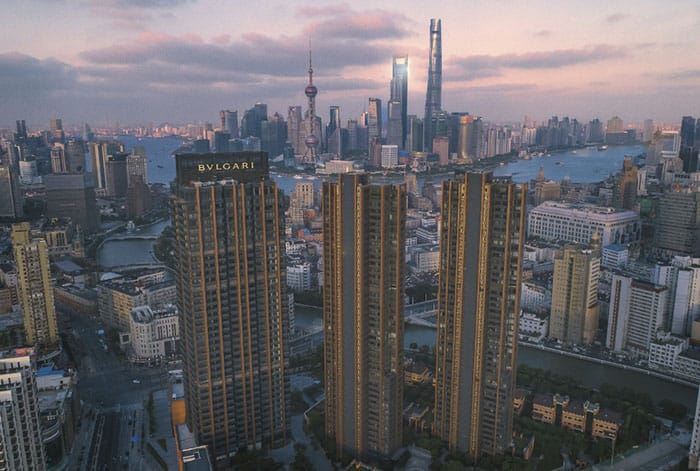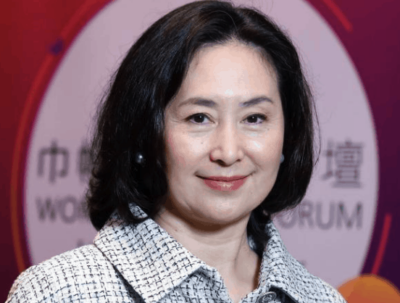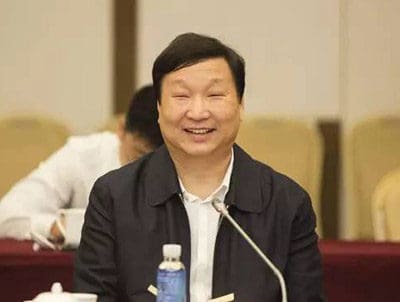
The Suzhou Creek project lies just west of OCT’s Bulgari Hotel and Residences
Shun Tak Holdings, the Hong Kong-based holding company of casino billionaire Stanley Ho is taking a gamble on a long-stalled Shanghai project, after leading a joint venture which acquired a half-stake in a site along Suzhou Creek, just a quick jog from the city’s historic Bund.
The property, transport, hospitality and investment arm firm announced to the Hong Kong stock exchange that, together with state-owned local partner China Enterprise Company Ltd, it had agreed to acquire a 50 percent stake in Shenzhen-based Overseas Chinese Town’s Suhewan Central Park project for RMB 4.71 billion ($670 million).
The transaction come more than 13 months after Overseas Chinese Town (OCT) had first officially listed for sale the 328,913 square metre mixed-use project as it struggled with apparent cash flow problems amid slowing home sales and tighter lending conditions on the mainland.
China Resources Land Declines to Exercise Option on Project
Shun Tak and China Enterprise acquired the 50 percent stake from OCT more than one month after the developer had listed the pair of companies that hold its 50 percent ownership in Suhewan Central Park on an official government exchange as a precursor to the sale.

Pansy Ho, group executive chairman of Shun Tak
The sale values the project, which occupies a 65,692 square metre site, at RMB 9.42 billion, or RMB 28,640 per square metre of built space. The announcement did not mention whether the partners would be assuming responsibility for any debt associated with the central Shanghai project.
The Shun Tak – China Enterprise joint venture, which is 80 percent owned by the Hong Kong firm, was the only bidder for the Suhewan Central Park stake in an official tender that followed OCT’s listing of the project on the China Beijing Equity Exchange on October 24th. China Resources Land, which had rights of first refusal for the stake, declined to bid on the asset.
The two partners will now work with China Resources Land, which holds the other 50 percent of the project in Jing An district, to move forward with Suhewan Central Park, which remains in the early stages of construction.
Shun Tak Looks Forward to Suzhou Creek Project
“(Shun Tak’s) experience in the development and operation of tourism destinations is highly complimentary to China Resources Land’s core strengths in executing large scale retail projects and established local relationships,” said Pansy Ho, group executive chairman and managing director of Shun Tak. “Through this partnership, the group will be able to add a portfolio of operating assets that contribute to its ongoing income, as well as harnessing capital appreciation potentials overs the long run.”
Under the existing plans for Suhewan Central park, which is scheduled for completion in stages, beginning in 2021, the northern section of the project, located away from the creek, consists of residential towers, office blocks, and low-rise commercial buildings intended for sale. The southern section of Suhewan Central Park, which overlooks Suzhou Creek, includes a public park, an underground shopping mall and a 200-metre-tall office tower to be held for long-term rental income.
The project along North Suzhou Road is located just west of where the Fujian Road bridge crosses the waterway, and just over one block west of the first phase of OCT’s Suhewan project, where the luxury Bulgari hotel opened last year.
OCT Caught Out by Home Price Crackdown
OCT, which mades its name as the developer of the Window of the World theme park in Shenzhen struck gold in Shanghai when it launched sales of the Bulgari Residences in the first phase of its Suhewan project in 2016. Homes in that project set a new record for the highest asking price ever recorded in the city at RMB 190,000 per square metre.

Overseas Chinese Town boss Duan Xiannian is receiving some new policy training
During that same year, the developer teamed up with China Resources Land in a joint venture which won a government land auction for the Suhewan Central Park site, agreeing to pay RMB 6.93 billion for the plot in what had formerly been Shanghai’s Zhabei district.
Soon after OCT joined with China Resources Land to purchase its second site along the creek, China’s central authorities began paying increasing attention to housing price inflation, with chairman Xi Jinping famously declaring in October 2017 that homes are for living — not for speculation.
Local authorities are now driven to keep a lid on average home prices in their districts, which has meant that sales of high-end homes must be kept to a trickle, if they are allowed to be sold at all.
This slowdown is reflected in OCT’s interim report showed that for the six months ended 30 June 2019, with the group recording an operating revenue of just RMB 311 million. That number represents 54.3 percent decrease over developer’s operating revenue during the same period of 2018. In the report, OCT attributed the slide in top line performance to slower sales at its Shanghai Suhewan project, as well as at its Chengdu OCT project, which it said resulted from government policies restricting home sales.
OCT’s RMB 930.44 million in revenue during the first six months of 2018 had reflected a decrease of approximately 52.1 percent compared with its results during the same period of the previous year, according to its 2018 interim report.

Leave a Reply